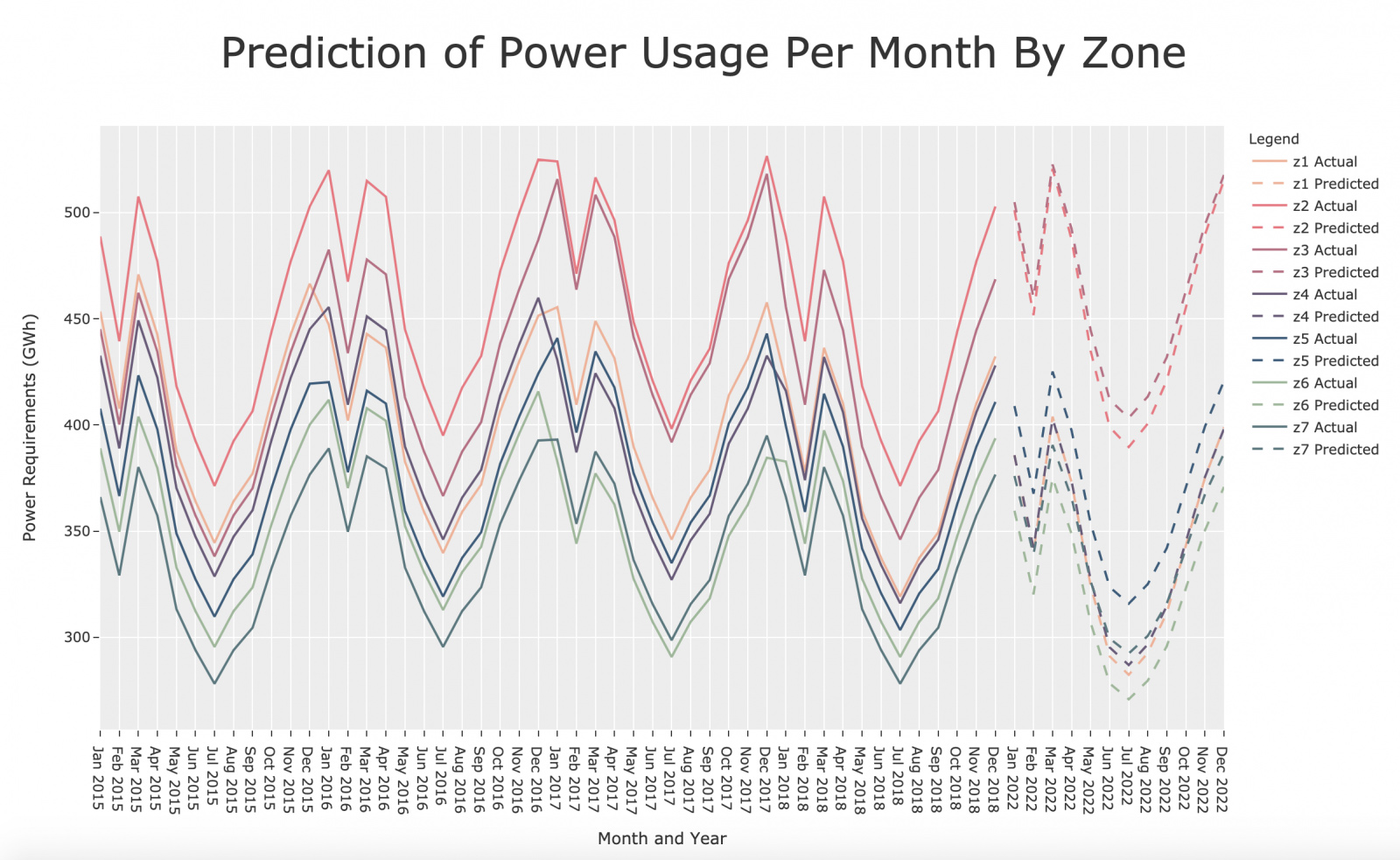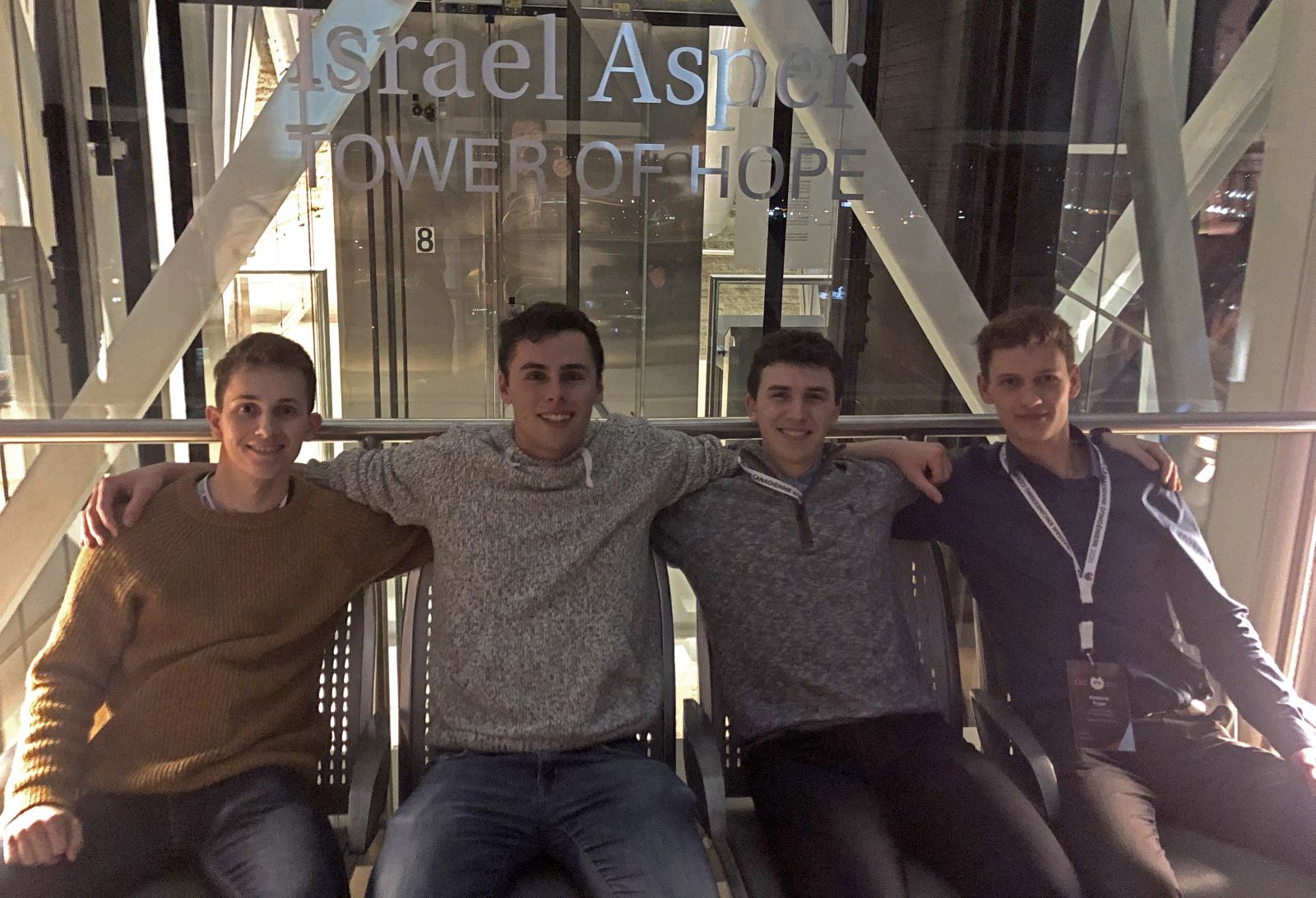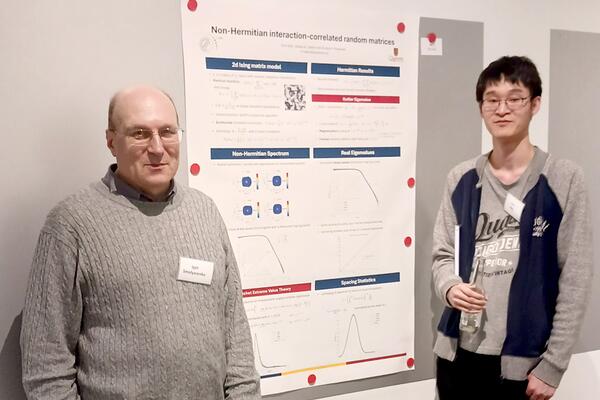
Image showing Prediction of Power Usage per month by zone. Please click for a larger image.

Team members (L-R): Joseph Grosso, Andrew Farley, Kyle Singer, Andrew Fryer
(Images: courtesy of Kyle Singer)
Kyle Singer (Eng Phys) and his team advanced to the Canadian Engineering Competition(CEC) after placing first at the Ontario Engineering Competition. At the CEC, which was held virtually from February 26-28 at the University of New Brunswick, they had great success coming in second place in the programming category.
Team members:
- Kyle Singer (Engineering Physics, Computer Option, Sci’ 21)
- Joseph Grosso (Applied Mathematics and Engineering, Computer Option, Sci’ 20)
- Andrew Fryer (Computer Engineering, Sci’ 22)
- Andrew Farley (Computer Engineering, Sci’ 21)
In Kyle's own word:
Last weekend my team and I had the opportunity to compete in the programming challenge of the Canadian Engineering Competition hosted remotely by the University of Fredericton. Given past energy consumption data of New Brunswick and 8 hours to work, we were tasked to predict the energy needs of the province for 2022 in addition to minimizing the cost while maximizing the non-emissive energy use. As a team, we were able to extrapolate data using a combination of a polynomial and linear model. Our final results for the energy consumption resulted in the province running on approximately 45% non-emissive energy for the year. In the end, we were able to take 2nd place at the competition.
Code can be found at:
github.com/ksinger12/CEC-2021 (contains documents on the competition as well as all of our code)
Related story: Kyle Singer and his Team Advance to the Canadian Engineering Competition
 Queen's 2015 Nobel Prize in Physics
Queen's 2015 Nobel Prize in Physics

